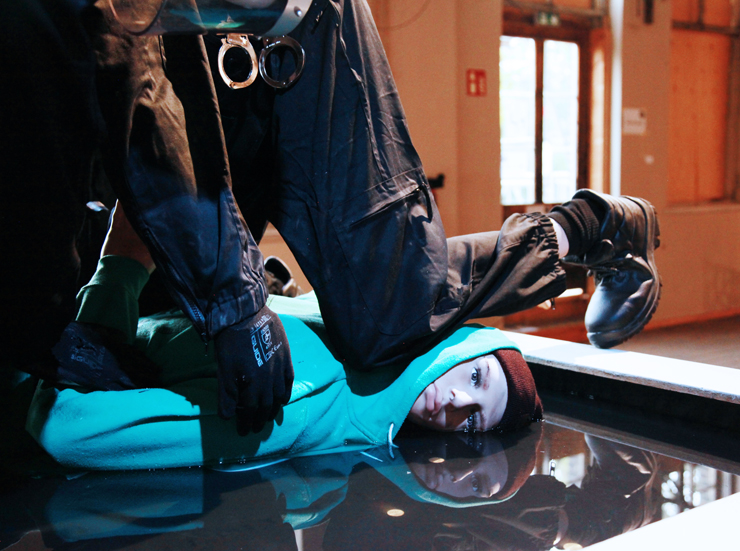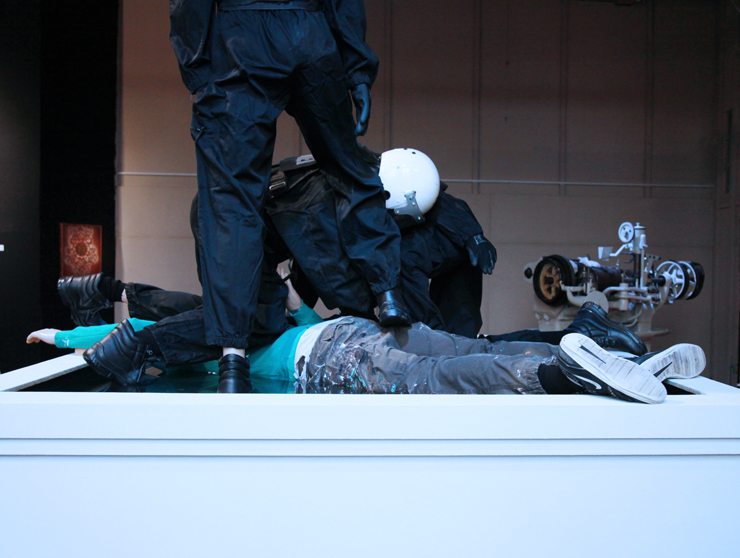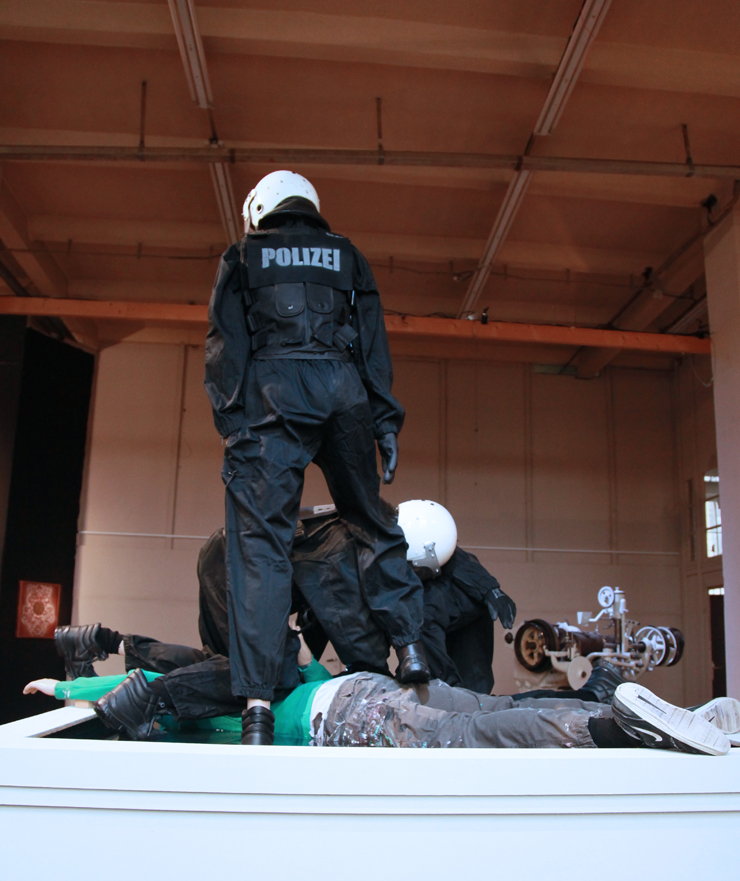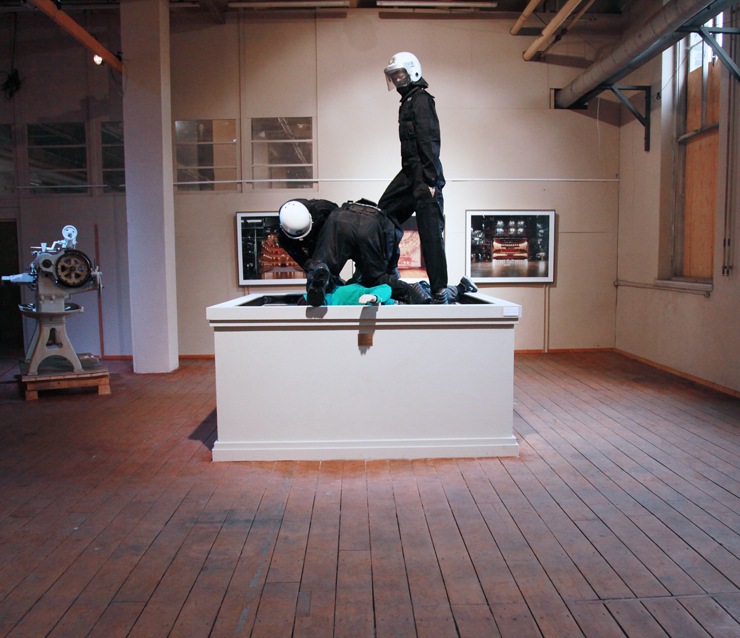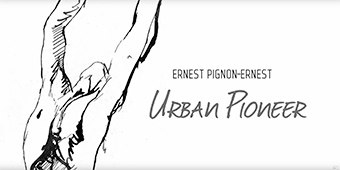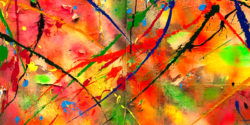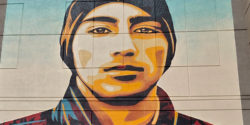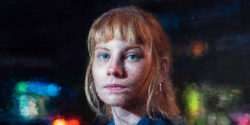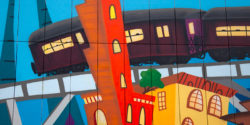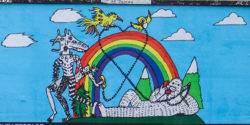“Utopia is not dead!,” curator Denis Leo Hegic loves to exclaim. Maybe not, but it is elusive.
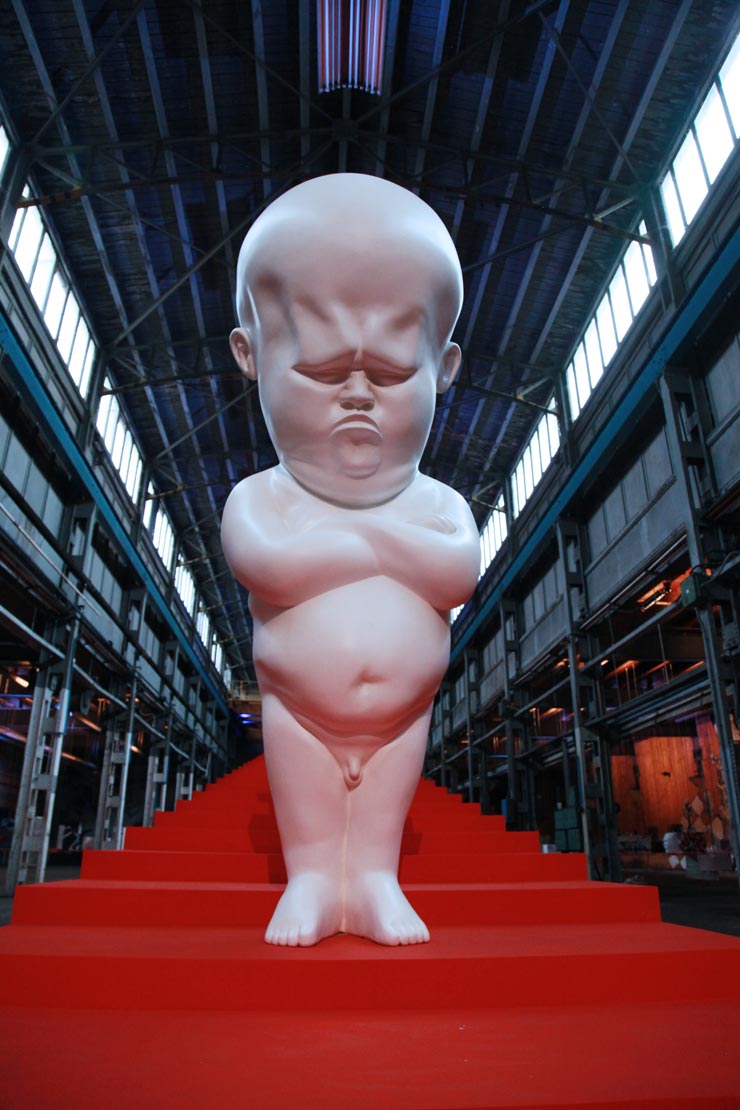
Monumenta Leipzig / The Intelligence Of Many. Viktor Frešo “Angry Boy”. Leipzig, Germany. September, 2018. (photo © Jaime Rojo)
You may catch a flash of Utopia here among heady concepts he entertains regarding iconization, scale, the elimination of tastemakers and gatekeepers, urban planning and architecture, art in the streets juxtaposed with art in galleries, or at the thumping of electronic DJs and darting lazers at the sweaty bumping house parties every weekend inside a cozy ex-storehouse for equipment.
The bitter will simply call this reinvigoration of a former metal works factory by Berlin’s Wandelism collective a tool of gentrification for its new real estate owner, but that kind of reductive criticism overlooks the cultural evolution that often is spirited by large multi-tentacled environments such as these.
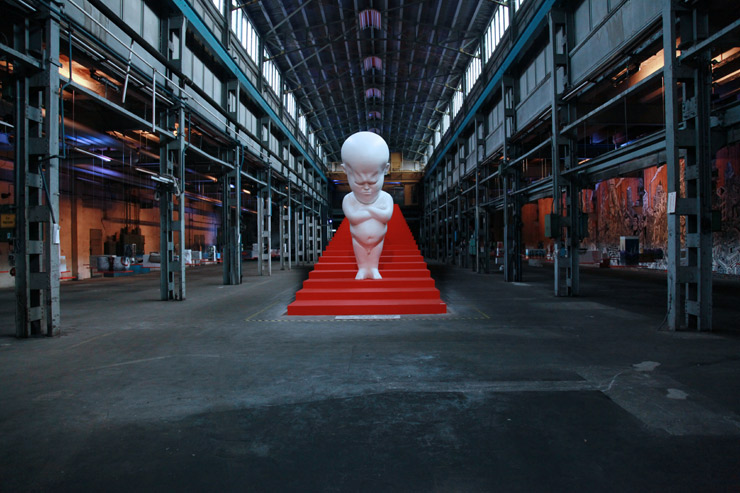
Monumenta Leipzig / The Intelligence Of Many. Viktor Frešo “Angry Boy”. Leipzig, Germany. September, 2018. (photo © Jaime Rojo)
Functioning as a large laboratory of experimentation that has entertained large crowds since late summer, Monumenta fosters thousands of conversations and strategies about art and culture and technology and the shifting geo-political future we will need to be prepared for it. It is almost as if the only preparation that we can hope to depend upon during increasing times of increasing complexity will be collective tribes like these, and ‘the intelligence of many’.
So here’s Jan Kuck melting wax and pouring it into light fixtures which, when turned on, will melt the wax again organically onto a pile of mirrors below – a curious kinectic sculptural installation you may call Wahnsinn, or madness. Kuck can easily mount his work at international art fairs, and he has – but this place affords an unquantifiable jolt of the D.I.Y. energy that powers artist spaces in big cities throughout Europe. Outside in the yard with his canvas leaning against the wall, Berlin’s Dino Richter is fastidious and attentive to detail with his sharp knife slicing through layers of tape, peeling off pieces to produce an intricately tight design evocative of circuit boards and ice cream pops.
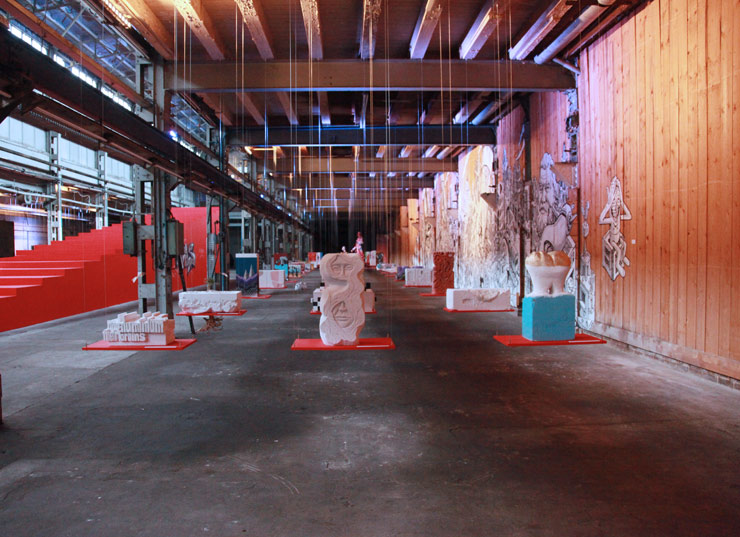
Monumenta Leipzig / The Intelligence Of Many. The Monument-of-Many Installation. Detail. Leipzig, Germany. September, 2018. (photo © Jaime Rojo)
Hosted on the post-industrial grounds of Pittlerwerke, 36,000 square meters of former machinery factories presents one sixth of that for a wide-ranging exhibition of urban, contemporary, graffiti, installation art, music, performance, talks and workshops. The spaces are generous, even holy in their scale; a conceptual big tent that gives room to a seriously considered eclecticism of artists and artworks that all somehow capture this moment before the abyss.
Here you’ll find one of the original Cologne “Neue Wilde” (Young Wild Ones) who also became known as a painter of the “Mülheimer Freiheit“, Hans Peter Adamski, his large abstractions only meters away from a fire extinguisher triptych by a current united graffiti power on city streets across Europe, the 1UP Crew. You’ll also see Berlin public/street art duo Various & Gould with an empty skin sculpture of Marx and Engels while Berlin art trio Innerfields creates machine guns of papier-mâché.
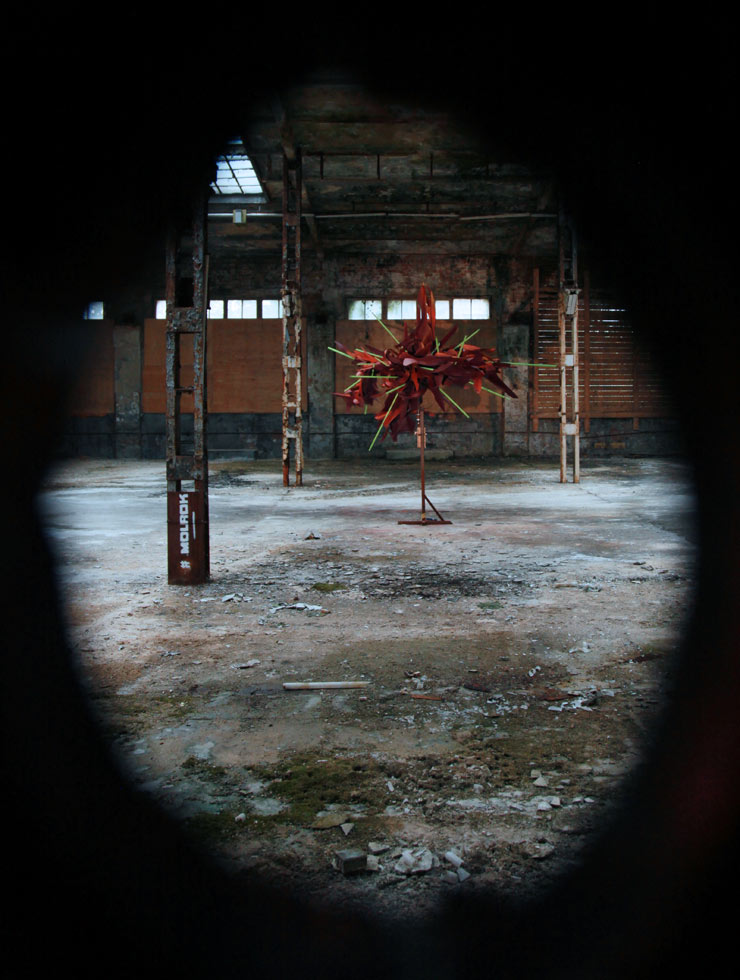
Monumenta Leipzig / The Intelligence Of Many. Dr. Molrok. Leipzig, Germany. September, 2018. (photo © Jaime Rojo)
The Ghanaian born, Vienna based painter Amoako Boafo brings one of his elegant figures of masculinity to a large canvas while down the hall Señor Schnu reenacts a sculptured scene of police brutality with a teen in a hoody half-submerged underfoot in murky water. Don’t forget the one hundred artist suspended installation of monuments-of-many flanking Viktor Frešo’s naked giant “Angry Boy” who may unhappily remind you of a certain president.
How do you begin to connect the dots here? Perhaps it’s more about opening the spaces between them for yourself.
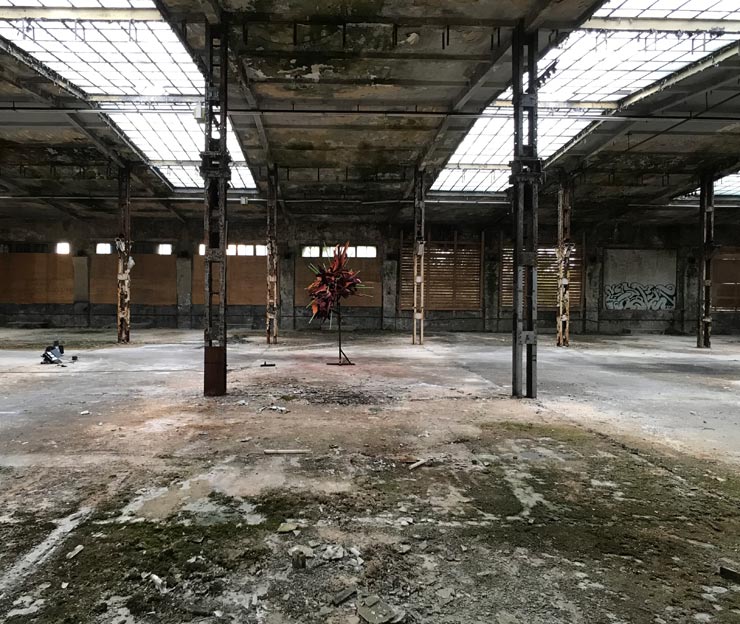
Monumenta Leipzig / The Intelligence Of Many. Dr. Molrok. Leipzig, Germany. September, 2018. (photo © Jaime Rojo)
Monumenta is part exhibition and cultural fair; a ‘happening’ of sorts; a surprisingly ego-free environment for making art that you can immediately put on display and have conversations about with an eclectic mix of art fans and peers. The multi-member team of artists and producers and writers and media makers have created a nether space in transition from its industrial past to an inconclusive future, creating the kind of environment where artists are rather liberated from presupposition. It feels like the result of a positively reductive process that strips away artifice and reminds us what the raw creative process is – and where it may go if given room and respect.
Curators Denis Leo Hegic and Jan Fielder created the environment in the moment, on the spot, and with some audacity. They also smartly partnered with a selection of sparkling seers including contemporary gallerist and manager Isabel Bernheimer, visionary ringmaster at Urban Spree Pasqual Feucher, the storied collector Marc Omar, and Berlin Art Society’s Michelle Houston.

Monumenta Leipzig / The Intelligence Of Many. WENU. Detail. “Divide et Impera”. Detail. Leipzig, Germany. September, 2018. (photo © Jaime Rojo)
Uneven and happily unfinished, the collection of experiences launches a sense of unified eclecticism; a multi-storied series of Lo and Hi, fine art paintings, installations, sculpture, photography and electronic media that create a collective chorus of possibilities on the cusp of the next crash. In a odd world of flattening hierarchies and spirited inclusionary programming the two principal architects of this future vision suggest a re-ordering that brings the street directly into the cathedral and ivy covered hall.
BSA spoke with Monumenta curators Denis Leo Hegic and Jan Fiedler about some of their preferred ways of seeing art and the thrill of mastering an enormous iconic industrial space for exhibiting artworks from so many disciplines and perspectives.
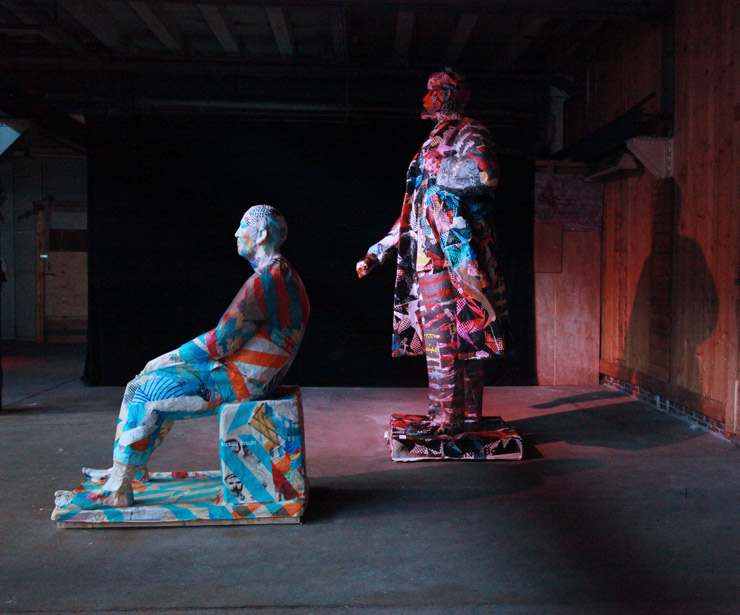
Monumenta Leipzig / The Intelligence Of Many. Various & Gould. Leipzig, Germany. September, 2018. (photo © Jaime Rojo)
Brooklyn Street Art: You spoke in your presentation during the Momenta Talks program about the concept of space and emotion when considering how to mount an exhibition. What part does emotion play in the experience of an art installation?
Jan Fiedler: Emotion is one of the central aspects while being confronted with art, and the perception of the artwork changes with the emotions you are going through while being in contact with said artwork. When you are sad, a painting or sculpture will trigger different feelings than when you are in a happy mood. Also the quality of an artwork really shows, and it may “force” you to feel a certain way.
It is interesting to observe how certain artworks can move people from different cultures, countries and backgrounds in the same way. It really shows that the language of art is universal. Especially the old masters can evoke these, mostly holy, emotions, even in faithless people. If we talk about these paintings, then we have to keep in mind that the eyes they were created for were the main source for evoking religious feeling. The ears were useless in Mass, since the sermon was held in Latin, a language most people did not understand, and the eyes went on a journey, trying to find a foundation for their faith in the art that was displayed in the churches. So they were painted in a certain way, to evoke exactly these feelings.
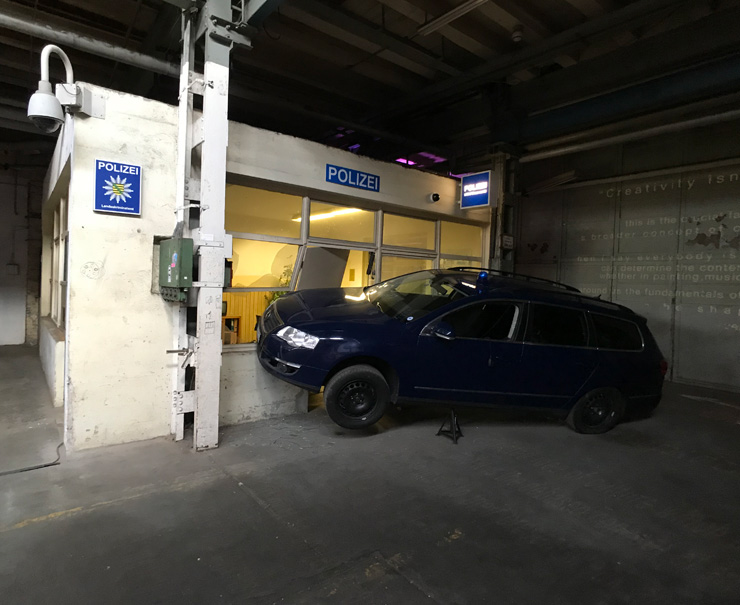
Monumenta Leipzig / The Intelligence Of Many. Rocco and his Brohters.“Dezernat 52”. Leipzig, Germany. September, 2018. (photo © Jaime Rojo)
These paintings hang in museums today, robbed of their original context and surroundings, but still are powerful to trigger feelings. And that applies to every artwork you want to put on display in an art show. You have to dedicate a certain amount of time to every single piece, feeling the emotional impact it has on you and arrange it in a way that highlights its qualities in the best way. So an art exhibition is in the best case a carefully arranged Orchestra that takes the visitor on an emotional journey.
Brooklyn Street Art: “The Intelligence of Many” is a phrase that was central to the formation and execution of Monumenta. Is this a model for curation that we may see in the future?
Denis Leo Hegic: Yes. It is not only a model of curation, it is a model of cooperation in different fields in a successful modern society. The information, which we have to deal with in every aspect of life, has reached such a great level of complexity, that working TOGETHER in a selfless way and profiting from the intelligence of many individuals involved is the only concept that can bring a true (and important) change.
Even if the world does not appear like that in this moment, it is actually the case that the era of self-centered egomaniacs is over. And that´s the good news.
In terms of curating something which we call “Urban Art”, there is absolutely no other way of doing it. This form of art is rooted within and powered by (urban) communities and the spirit that arrives from them. One can fake this credibility just for a limited time. The intelligence of many is the counter concept to the stupidity of one.
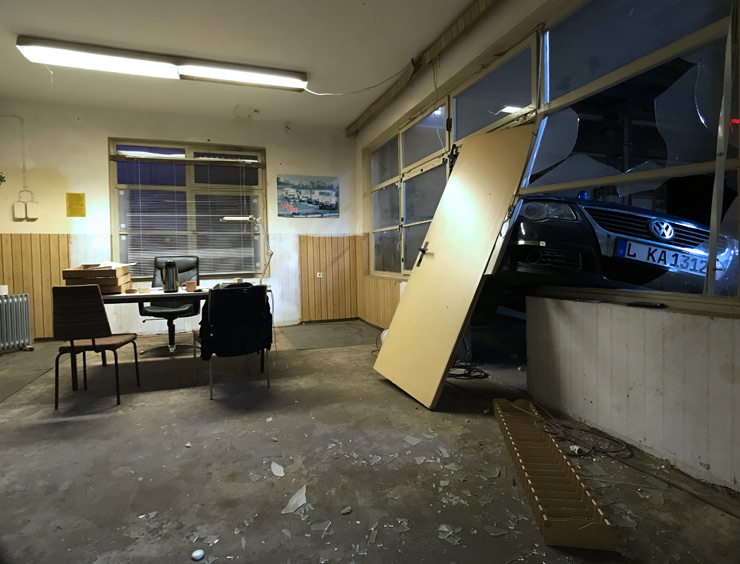
Monumenta Leipzig / The Intelligence Of Many. Rocco and his Brohters.“Dezernat 52”. Leipzig, Germany. September, 2018. (photo © Jaime Rojo)
Brooklyn Street Art: Can you talk about the cathedral quality of the initial hall at Monumenta?
Jan Fiedler: The “Church”, as we call the entrance hall of Monumenta, is a nickname that has its origins in the unique architecture which resembles a Basilica – is a very special room, which from a curatorial point of view demands a large amount of attention. This is especially so because it resembles a church, a place where there is only room for one god. We decided to dedicate it to the Monument-of-Many, the visions of one hundred different artists.
But there is a reason why churches and cathedrals have such an effect on the spectator, because they play with scale and the tools of iconization. We used the exact same tools, but not to promote one singular idea, but to present a grumpy baby, the symbol of hope and future, where nobody can be certain how it will turn out if it grows up. This again is one of the aspects of Monumenta; To let go of total control and to give artists the freedom to unfold their creativity.
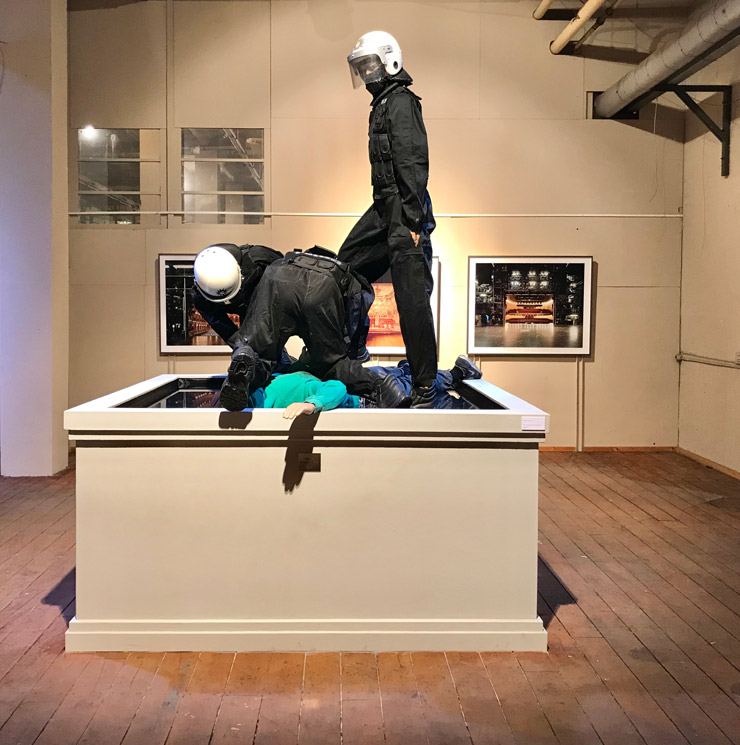
Monumenta Leipzig / The Intelligence Of Many. Señor Schnu. Leipzig, Germany. September, 2018. (photo © Jaime Rojo)
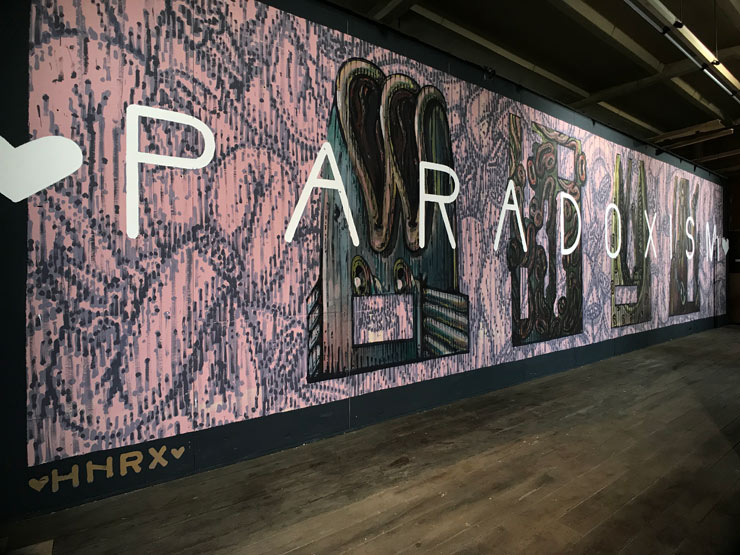
Monumenta Leipzig / The Intelligence Of Many. HNRX “Paradoxism”. Leipzig, Germany. September, 2018. (photo © Jaime Rojo)
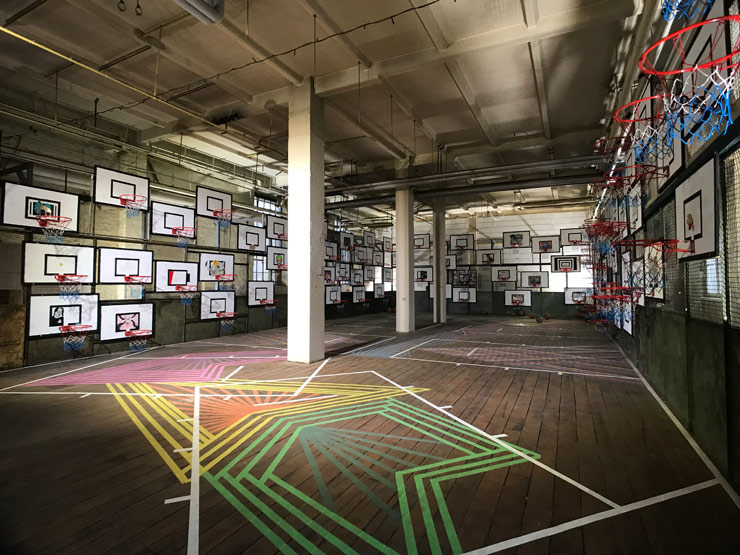
Monumenta Leipzig / The Intelligence Of Many. Play with art. Guillermo S. Quintana on the floor with several artists on the boards. Leipzig, Germany. September, 2018. (photo © Jaime Rojo)
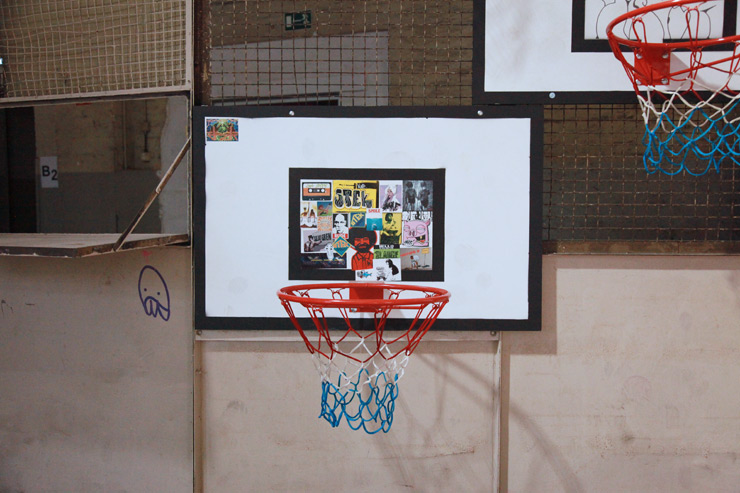
Monumenta Leipzig / The Intelligence Of Many. Play with art. Detail. Leipzig, Germany. September, 2018. (photo © Jaime Rojo)
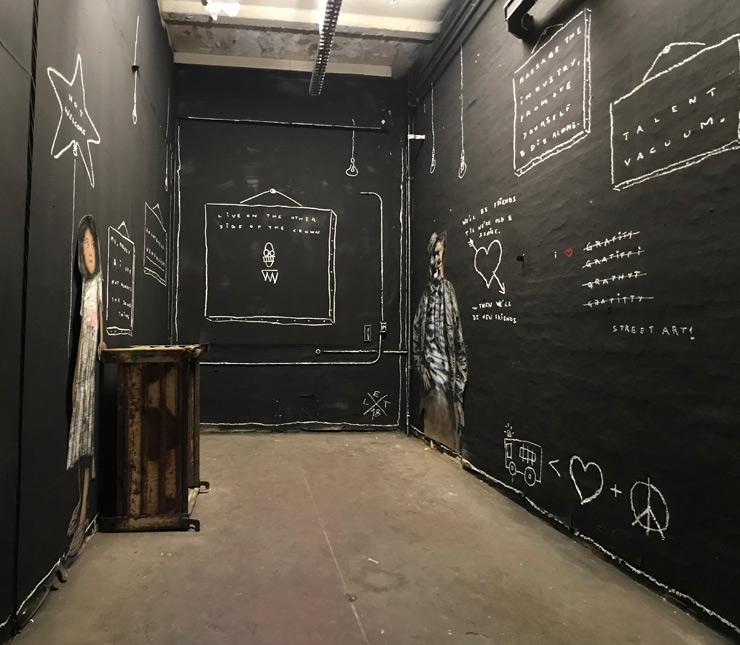
Monumenta Leipzig / The Intelligence Of Many. Les Enfants Terribles. Detail. Leipzig, Germany. September, 2018. (photo © Jaime Rojo)
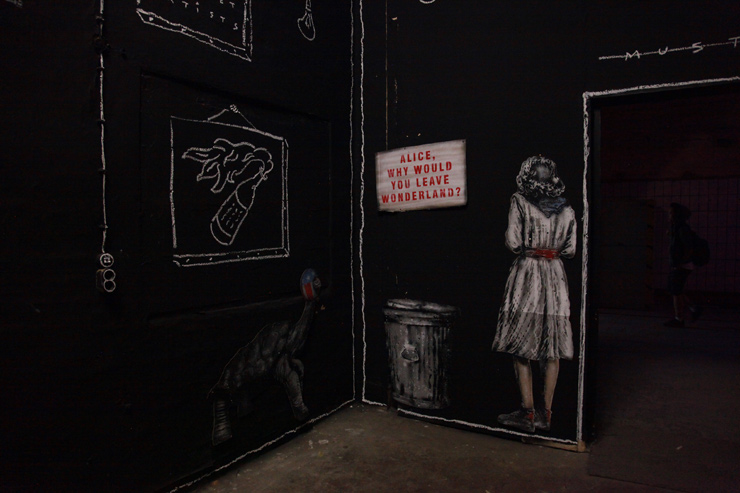
Monumenta Leipzig / The Intelligence Of Many. Les Enfants Terribles. Detail. Leipzig, Germany. September, 2018. (photo © Jaime Rojo)
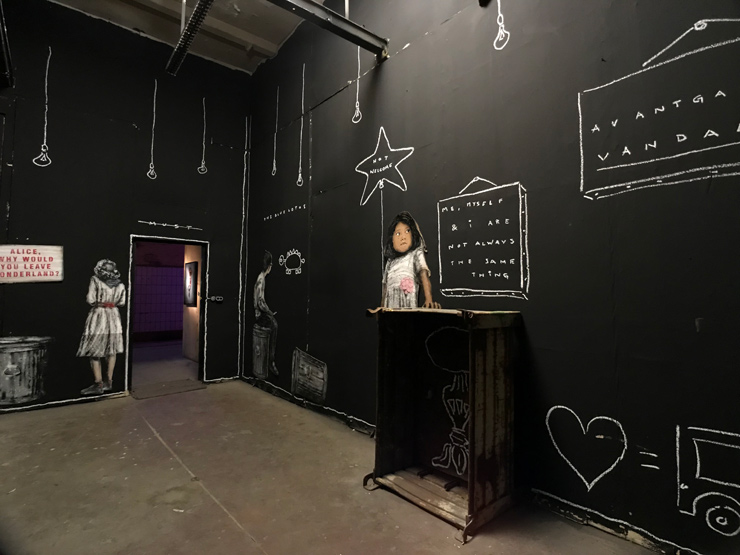
Monumenta Leipzig / The Intelligence Of Many. Les Enfants Terribles. Detail. Leipzig, Germany. September, 2018. (photo © Jaime Rojo)
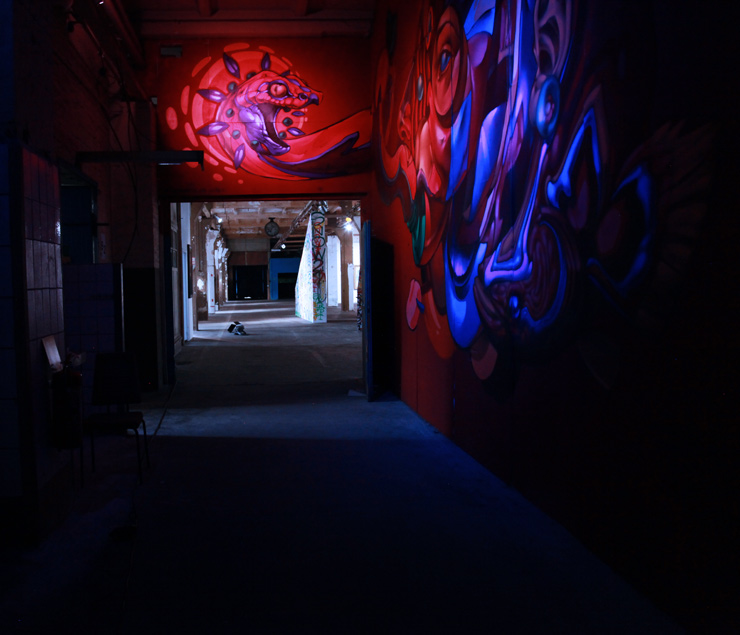
Monumenta Leipzig / The Intelligence Of Many. NASCA. “Cruz”. Leipzig, Germany. September, 2018. (photo © Jaime Rojo)
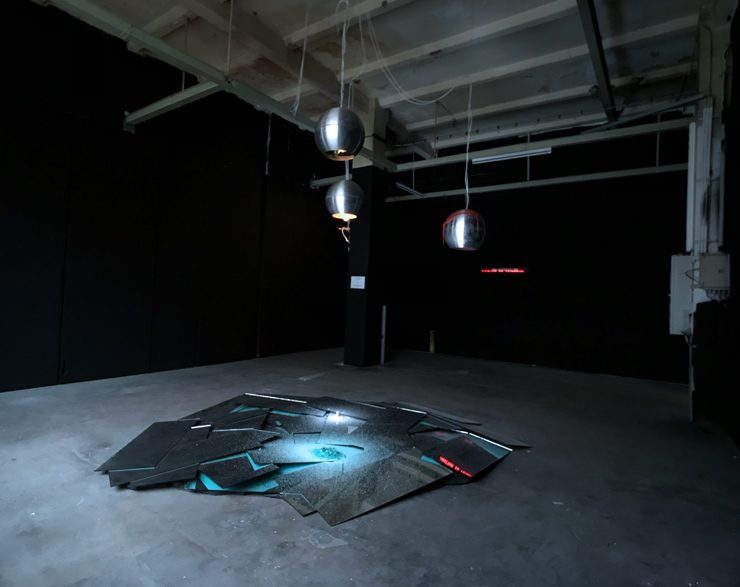
Monumenta Leipzig / The Intelligence Of Many. Jan Kuck. Leipzig, Germany. September, 2018. (photo © Jaime Rojo)
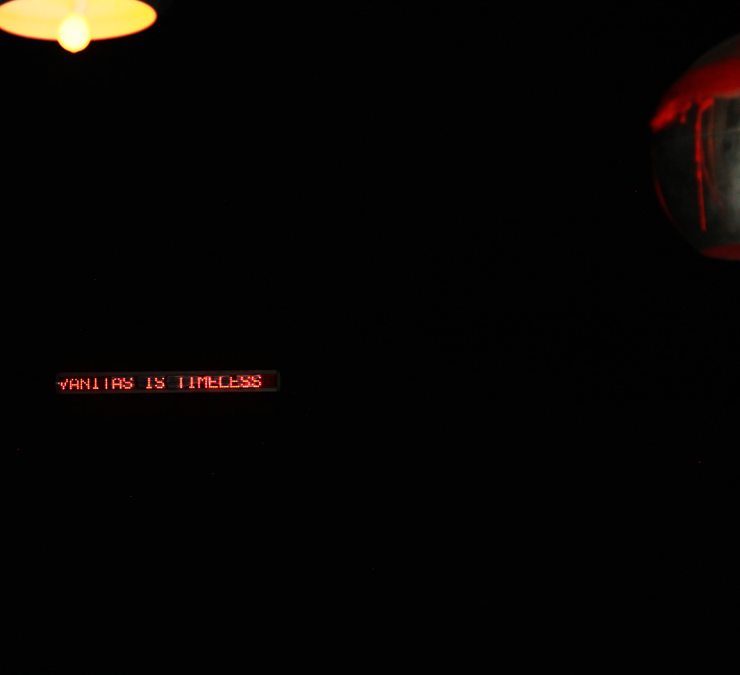
Monumenta Leipzig / The Intelligence Of Many. Jan Kuck. Leipzig, Germany. September, 2018. (photo © Jaime Rojo)
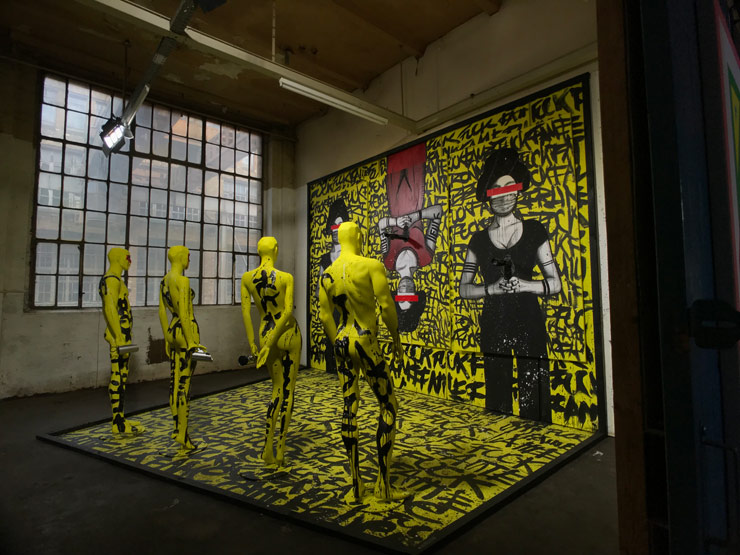
Monumenta Leipzig / The Intelligence Of Many. Ron Miller. “Gun-Geisha”. Leipzig, Germany. September, 2018. (photo © Jaime Rojo)
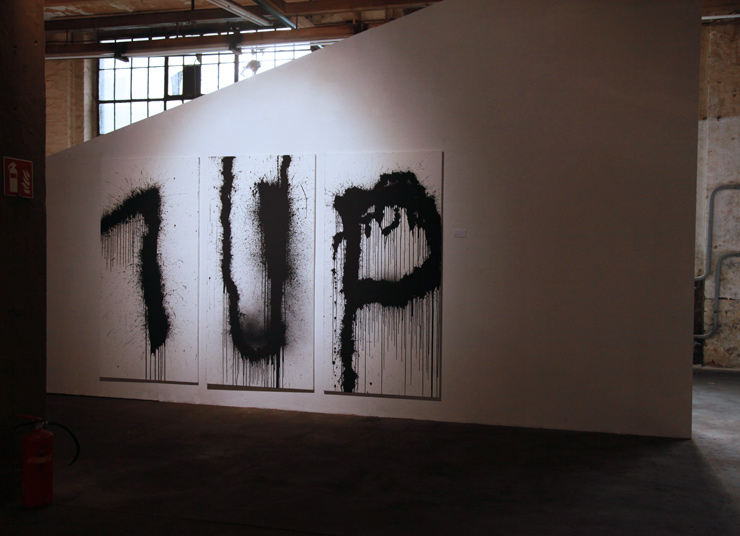
Monumenta Leipzig / The Intelligence Of Many. 1UP Crew. Leipzig, Germany. September, 2018. (photo © Jaime Rojo)
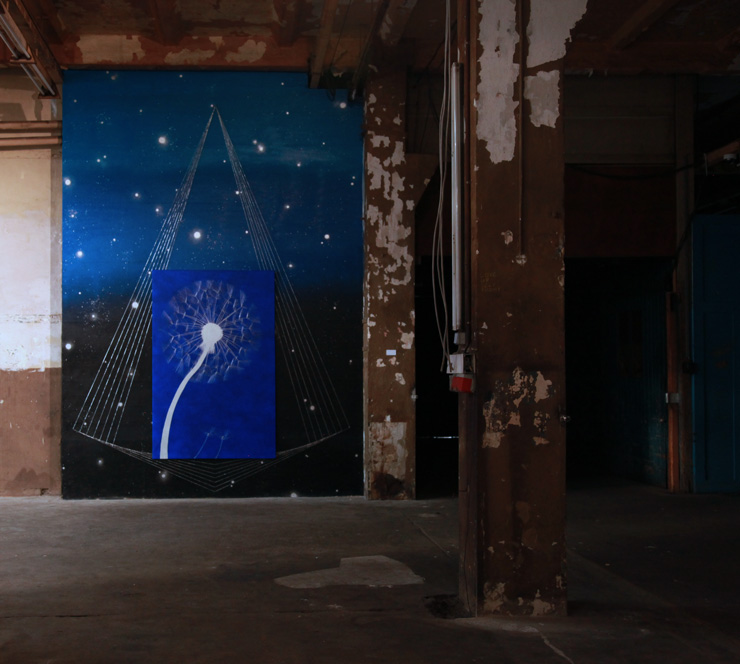
Monumenta Leipzig / The Intelligence Of Many. Marina Zumi. “View Insight”. Leipzig, Germany. September, 2018. (photo © Jaime Rojo)
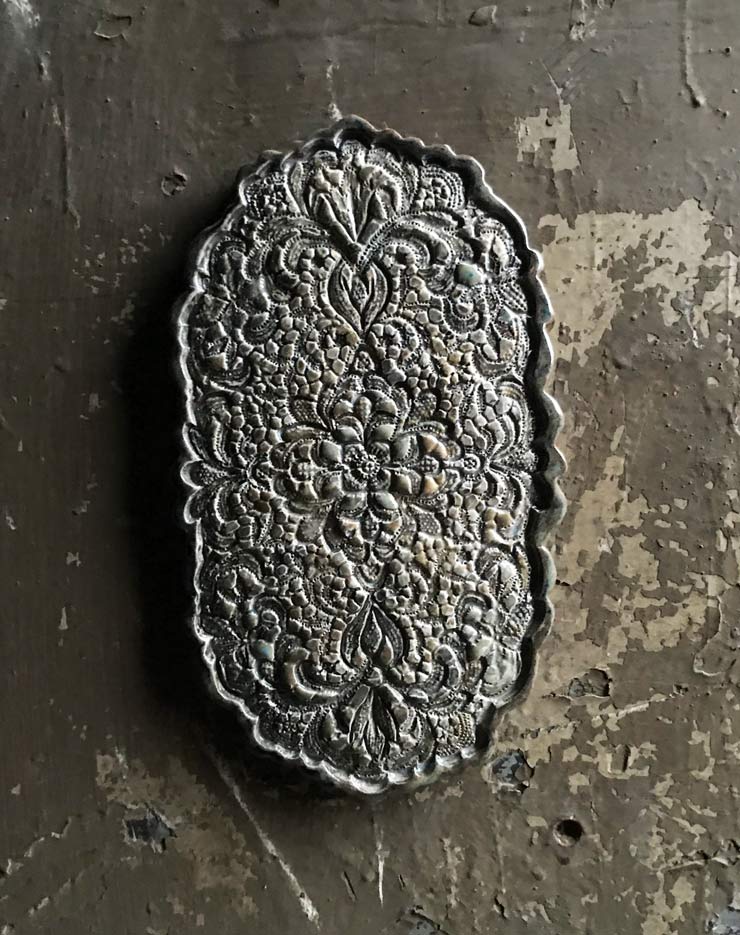
Monumenta Leipzig / The Intelligence Of Many. NeSpoon. Leipzig, Germany. September, 2018. (photo © Jaime Rojo)
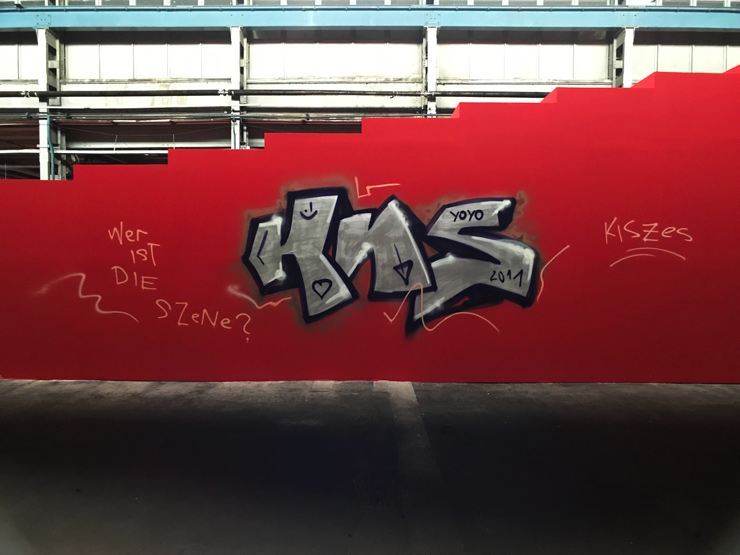
Monumenta Leipzig / The Intelligence Of Many. KNS. “Where Is The Scene?”. This piece wasn’t commissioned but rather illegally painted during the opening days of the exhibition. The organizers of the exhibition decided to keep it in place instead of buffing it. Leipzig, Germany. September, 2018. (photo © Jaime Rojo)
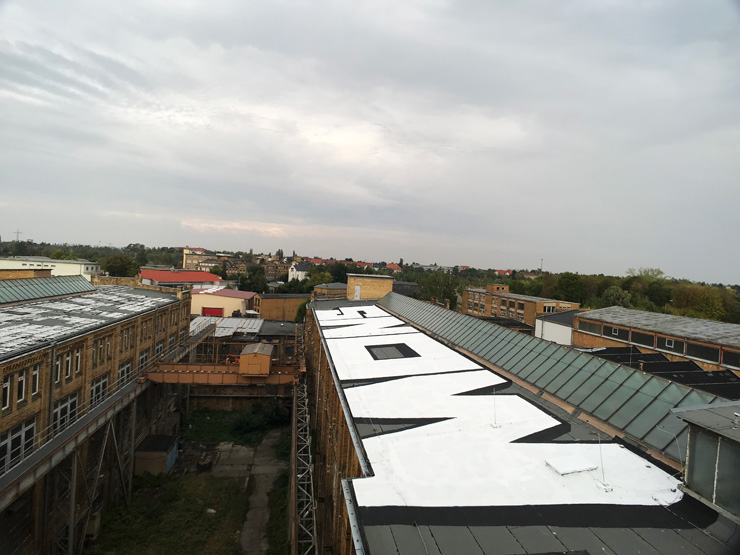
Monumenta Leipzig / The Intelligence Of Many. SNOW. Leipzig, Germany. September, 2018. (photo © Jaime Rojo)

Monumenta Leipzig / The Intelligence Of Many. The organizaers. Standing, from left to right: Niklas Jedowski, Sabrina Markutzyk, Jan Gustav Fiedler, Denis Leo Hegic and on the floor Dorian Mazurek. Leipzig, Germany. September, 2018. (photo © Jaime Rojo)
Monumenta Leipzig / The Intelligence Of Many is currently open to the general public in Leipzig, Germany. Click HERE for general information, schedules of upcoming events, directions etc…
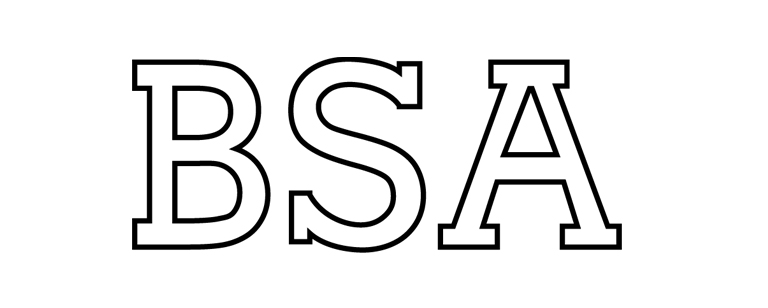 BROOKLYN STREET ART LOVES YOU MORE EVERY DAY
BROOKLYN STREET ART LOVES YOU MORE EVERY DAY
